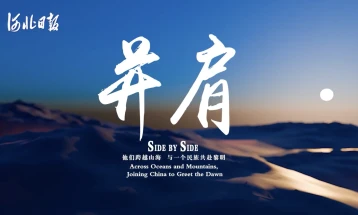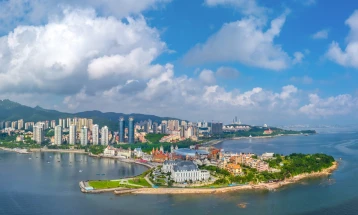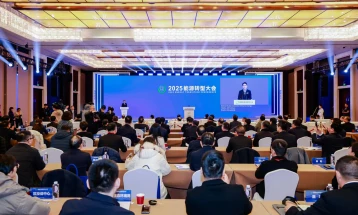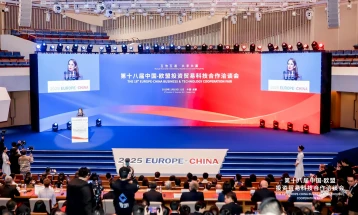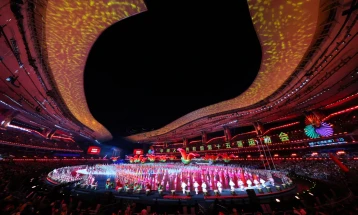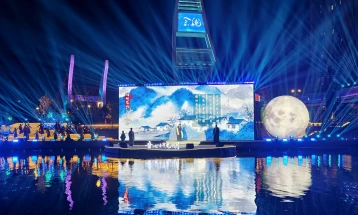In the words of Fatos Grubi: “Creating space for women of all different backgrounds in media can shift the public perception, especially if women are shown in less stereotypical roles and more so in decision-making positions.”
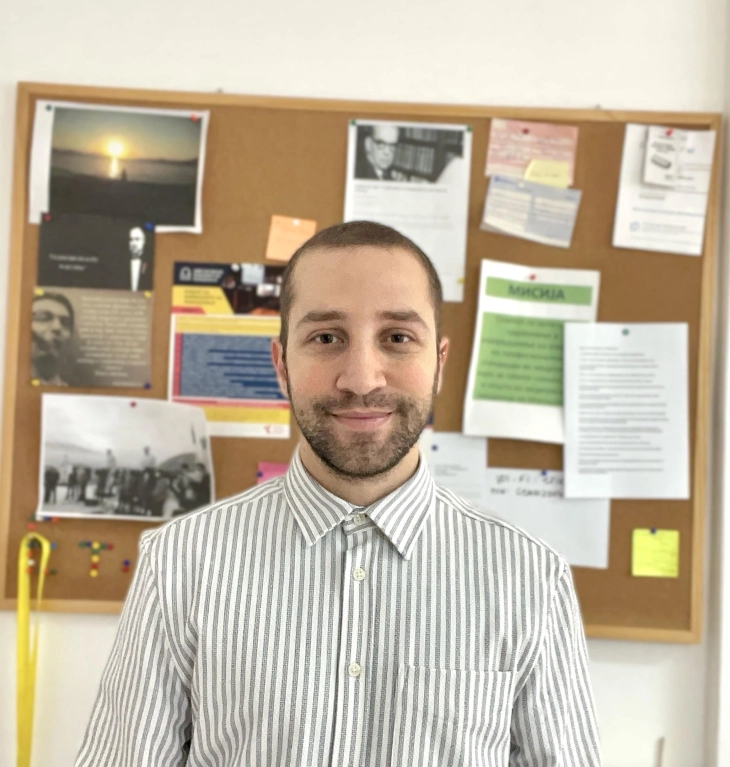
Fatos Grubi, a 30-year-old activist, translator, writer, and journalist from Skopje, North Macedonia, has been at the forefront of advocating for gender equality and human rights. As a writer and journalist at Mollekuqja.mk, he uses this platform to amplify marginalized voices and challenge patriarchal norms in North Macedonia, while he encourages the younger generation to speak up and stand up for their rights. His commitment to promoting gender equality extends beyond writing by his involvement at the Council of Media Ethics of Macedonia (CMEM), where he works to combat hate speech and increase awareness of media ethics with particular attention to women and girls under-representation. Fatos joined the UN Women’s "Imagine" campaign believing in the impact this initiative can have in raising awareness and challenging local gender-based stereotypes in North Macedonia and Western Balkans.
I recall talking with a couple of my female friends back in high school and sharing with them how soothing nightly walks along the promenade of the Vardar River in Skopje are. I suggested that they do the same. Their eyes met, and a silent understanding passed between them, a tacit acknowledgment of shared experiences. At that moment, they confided in me, revealing their apprehension about walking alone at night and I became painfully aware of my privilege as a man. This led me to delve deeper and read more into these topics, creating space for my friends to openly talk to me about their experiences in our seemingly same world. Driven by this newfound awareness, I gradually began my activism for gender equality and human rights engaging in vocal advocacy at protests, media appearances, and creative contributions to organizations championing these causes.
For a year now, my role as a writer and journalist at Mollekuqja.mk has been instrumental in amplifying marginalized voices and shedding light on critical issues that specific groups of people
face in our society. Through my articles, I strive to challenge rigid gender norms by bringing attention to certain aspects of the patriarchal society in North Macedonia, such as the hyper-focus on women's virginity, gender equality in elementary school books, and traditional gender roles in Macedonian and Albanian/Balkan societies.
Through my articles and poems, I try to encourage the younger generation to not be afraid when speaking up and standing up for their rights and the rights of others. Voicing their support for gender equality and human rights will help them find like-minded people and create a network that will operate and organize more efficiently than one person on their own. Also, no action is too little, because everyone is good at something. I would tell them to find what their strengths are and how they can utilize them to support the movement that they want to join.
My commitment to promoting gender equality extends beyond writing. Since November 2023, I have been employed at the Council of Media Ethics of Macedonia (CMEM), where I work to increase awareness of media ethics and combat hate speech. The experience gained through the media realm has taught me that many challenges greatly impact gender equality in media, the first being under-representation. Creating space for women of all different backgrounds in media can shift the public perception, especially if women are shown in less stereotypical roles and more so in decision-making positions. To those denying sexism or belittling women's struggles: I educate the uninformed but ignore trolls wasting my time.
Alongside this hardship, what prevents women from being equally represented in media is the sexism and harassment that they face, scrutiny that men in their respective positions do not experience. There needs to be more support for women when they become targets of these attacks and to prevent this from inhibiting their professional growth. In addition, media owners and editors-in-chief should be more aware of the content they put out, as well as the consequences that women face as a result. Therefore, they need to encourage and support the creation of gender-inclusive content that promotes equality. Apart from this, they must also ensure the support and safety of journalists during public attacks.
MИА - OTS Commercial announcements
Note: Original text. The content is the responsibility of the client.
